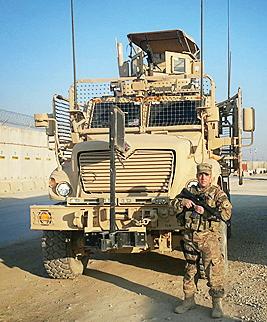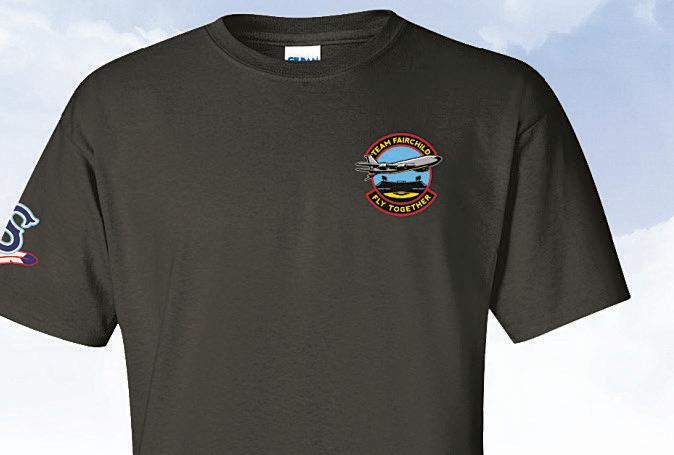
5 minute read
Enduring freedom
OPERATION ENDURING FREEDOM VETERANS HEALTH ISSUES
If you served in Afghanistan during Operation Enduring Freedom (OEF) any time after Oct. 7, 2001, you may be at risk of certain health conditions. Learn about these conditions and what to do to take care of your health.
What health risks should I know about related to my service in Afghanistan?
You may be at risk of:
• HEALTH PROBLEMS CAUSED BY TOXIC CHEMICALS OR OTHER HAZARDOUS MATERIALS IN THE ENVIRONMENT, LIKE:
Sand, dust, and particulates: Tiny matter found in the air
Burn pit smoke: Smoke from open-air pits often used to get rid of waste (like chemicals, paints, munitions, and other substances) at military sites in Afghanistan
Depleted uranium: Uranium used in military tank armor and some bullets
• INJURIES CAUSED BY:
Extreme cold: Health problems (like skin cancer in frostbite scars or pain, tingling, or numbness in the fingers and toes) caused by the effects of cold climates
Extreme heat: Health problems (like heat stroke, heat exhaustion, and sunburn) that can be caused by serving in hot desert climates
Toxic embedded frag-
ments: Shrapnel and other metals (some containing chemicals) that stay in your body after an injury and can cause injury at the site of the fragment or in other parts of your body
Explosions: Explosions that can cause concussions and traumatic brain injury (TBI), an injury to the head that affects the way your brain works
Noise: Harmful sounds from guns, explosives, rockets, heavy weapons, jets and aircraft, and machinery that can cause or contribute to hearing loss and tinnitus (ringing in the ears)
• ILLNESSES CAUSED BY:
Infectious diseases: There are 9 infectious diseases related to Southwest Asia and Afghanistan military service. These are malaria, brucellosis, campylobacter jejuni, coxiella burnetii (Q fever), mycobacterium tuberculosis, nontyphoid salmonella, shigella, visceral leishmaniasis, and West Nile Virus.
Rabies: A disease that you get from a bite or contact with saliva from an infected animal
Occupational (job-related)
hazards: Chemicals, paints, radiation, and other hazards you may have come in contact with through your military job
Side effects of Mefloquine
(brand name: Lariam®): A drug given to military personnel to help protect against malaria (an infectious disease transmitted by mosquitoes)
What should I do now?
Take these steps to make sure you’re taking care of your health: • Join the Airborne Hazards and Open Burn Pit Registry to document your exposures and health concerns. (https://veteran. mobilehealth.va.gov/AHBurnPitRegistry/) • Talk to your primary health care provider or your local VA environmental health coordinator about any health concerns related to your military service. (Find a list at https://www.publichealth.va.gov/exposures/ coordinators.asp) • Find out if you can get disability compensation (monthly payments) and other benefits if you have an illness or injury caused – or made worse – by your active-duty service. To find local help see the “How can I Get Help?” section on Page 5.
A Veterans Story: Bradley Jordan
Spokane Air Force veteran shares Bagram Air Base memories
By Darrel Maddux
VETERANS HELP NET CORRESPONDENT

Bradley Jordan, Spokane VFW 51 member, knows too well the stresses of serving our country in a hostile and dangerous location.
Bagram Air Base was formerly the largest U.S. military base in Afghanistan. Bradley was an Air Force Tech Sgt E-6 and security supervisor of a sector on the base. His pre-deployment training consisted of lectures by instructors who had never served in Afghanistan and who explained what they had heard from returning airmen. The information received was probably 50% accurate so his first few days behind the wire were crucial to his survival.
The Afghan military was deployed outside the base and the para-military forces and American military secured the inside perimeter. The “normal” for Bradley and his personnel was setting up security and being shot at or rocketed almost on a daily basis.
They went from boredom to rocket attacks as sunset at 9 p.m. brought the enemy to life. His shifts lasted 12 to 15 hours, but an attack would activate his sleeping team back on security detail. He will never forget Thanksgiving and Christmas when the base was under constant attack from small arms fire and rockets. Bradley assumes that the enemy was attempting to wear the Americans down and to lower morale.
A sewage stream ran right through the Air Base and Bradley could smell the ever-present odor of burning trash and burning rubber. Due to the many health hazards, no one was allowed near the stream.
Children ages 6-18 were a persistent threat because they would dig tunnels, climb fences and cut wires to gain entry to the base. These children could not be engaged with lethal weapons so the team used paint-ball guns and stingball grenades to keep them at bay. The children would enter the base and steal anything they could get their hands on.
Outside the gates were many dangers because the Afghan Army, Afghan Police and the locals could not be trusted. Children wanted to hug the Americans and would reach into pockets and gear. Local people would appear to be your friend but might attack you later in the day.
The use of retinal scanners and finger printing databases were necessary to only allow prescreened locals on the base. Banks, markets, local gathering spots and residential areas were located around the base, therefore, any patrols through these areas were done with extreme caution.
Bradley and his team communicated with family back home as often as possible but they did not explain the constant dangers they faced.
After returning home, Bradley struggled to communicate with his family. His mind in Afghanistan was on constant alert so it was a big challenge to adjust to life outside a war zone. Today he questions why our military stayed so long in Afghanistan. Darrel Maddux is a Veterans Help Net Correspondent and American Legion Historian

COURTESY PHOTOS
Bradley Jordan was an Air Force Tech Sgt E-6 and security supervisor of a sector at Bagram Air Base.
Refueling
Our Heroes
Buy your flight Support fellowVeterans gear and be ap or donate today! art of Operation Fly Together. Aportion of all merchandise proceeds go into aVeterans Fund. Operation FlyTogether.com









